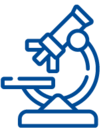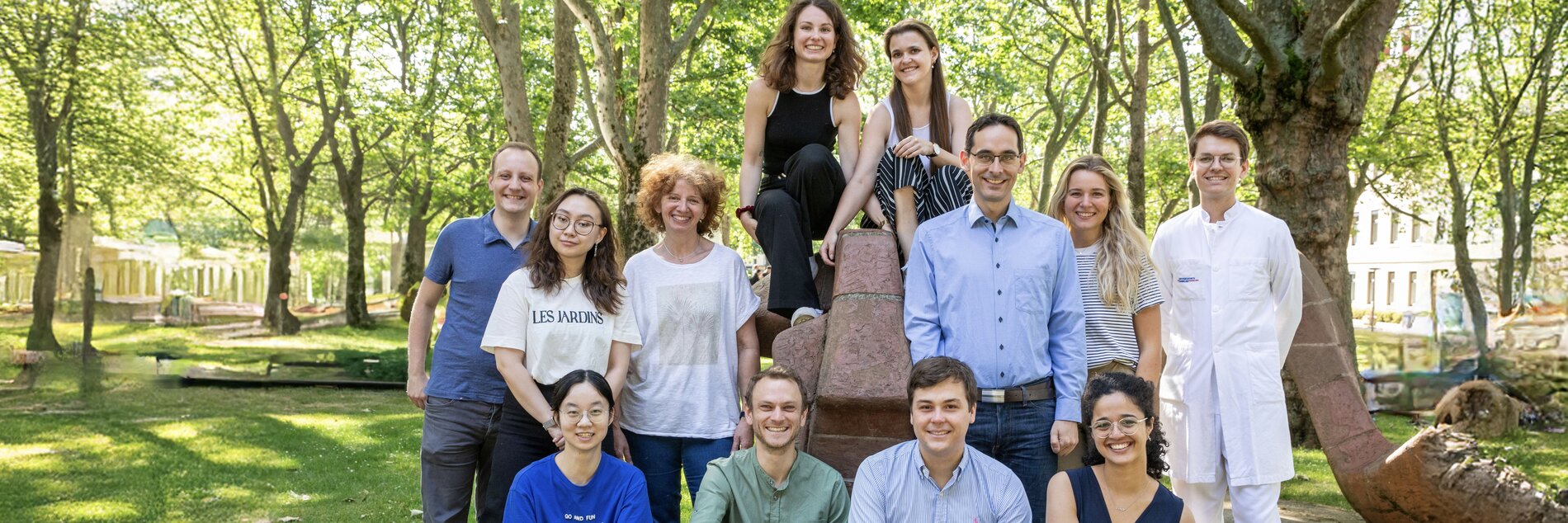Translational Systems Immunology in Hepatogastroenterology
The immune system is key to the understanding of many infectious, autoimmune and malignant diseases. In the lab, we study how the immune system responds to these challenges with the goal to translate this better understanding to inform therapeutic decisions, such as during immunotherapy, and identify cellular mechanisms controlling immune function to reveal additional targets for the manipulation of immune responses. We utilize advanced single-cell profiling approaches including mass cytometry and imaging mass cytometry in combination with algorithmic deconvolution of the dense data sets.
Diseases currently studied in the lab:
- Acute and chronic viral hepatitis (focus on HBV and HCV infection)
- COVID19
- Inflammatory Bowel disease
- Hepatocellular Carcinoma
- Non-alcoholic Steatohepatitis
- Autoimmune Hepatitis
- Checkpoint-Blockade - associated adverse immune hepatitis and enteritis
- Malignant Melanoma
A major focus in the lab is centered on understanding exhausted T cells (TEX), which constitute a T cell lineage distinct from functional memory and effector cells that is characterized by co-expression of immunoregulatory molecules, an altered transcriptional and epigenetic landscape and reduced effector and memory functionality. We have demonstrated that bioenergetic regulation through immune checkpoints (e.g., PD-1) is an important driver of exhaustion. Further, we have demonstrated heterogeneity and disease associations of different varieties of exhausted T cells in humans that are impacted by therapy. Ongoing projects currently focus on understanding the cellular mechanisms underlying the differential usage of immunometabolism in different subtypes of T cells and understanding the role of peripheral and tissue-resident immune populations.
We work closely together with the Freiburg Liver Immunology research groups. Our lab runs the Freiburg Mass Cytometry Unit.
Group of Bertram Bengsch
Prof. Dr. Dr. Bertram Bengsch (Group leader) | +49 (0) 761 270-32870 |
Dr. Maryam Barsch (Clinician Scientist) | +49 (0) 761 270-34010 |
Dr. Jürgen Beck (PostDoc) | +49 (0) 761 270-36330 |
Ira Godbole (PhD student) | +49 (0) 761 270-35110 |
Laurenz Krimmel (MD student) |
|
Ke Meng (PhD student) | +49 (0) 761 270-35110 |
Dr. Julia Mitschke (PostDoc) | +49 (0) 761 270-33290 |
Patricia Otto-Mora (MTA) | +49 (0) 761 270-35090 |
Dr. Günter Päth (Post Doc) | +49 (0) 761 270-33290 |
Felix Röttele (PhD student) | +49 (0) 761/270-33962 |
Henrike Salié (MD student) |
|
Lea Seidel-Raub (PhD student) |
|
Emilia Schlaak (MD student) |
|
Jonas Stritzker (MD student) |
|
Yuan Suo (PhD student) | +49 (0) 761 270-35110 |
Nandini Terway (PhD student) | +49 (0) 761 270-33960 |
Dr. Frances Winkler (PostDoc) | +49 (0) 761 270-33961 |
Lara Wischer (MD student) |
|
Weimeng Yu (PhD student) | +49 (0) 761 270-33960 |
Funding
- Sonderforschungsbereich-TRR179 (Deutsche Forschungsgemeinschaft, DFG)
- Sonderforschungsbereich 1160: IMPATH (Deutsche Forschungsgemeinschaft, DFG)
- Exzellenzcluster BIOSS und CIBSS (Centre for integrative Signaling Studies)
- German Mass Cytometry Network (GERMANET)
View all publications
Open positions
We are seeking a highly motivated individual with a passion for exciting state-of-the art technology to work with a team of translational immunologists to lead the mass cytometry and imaging facility in the Bengsch lab as part of the Translational EXperimental IMmunology labs at the University of Freiburg, Germany.
Key Responsibilities:
- operation, maintenance and use of the CyTOF Helios and the HyperionImaging System
- build and optimize mass cytometry and imaging cytometry antibody panels
- conjugation and QC of mass cytometry reagents
- consult with users regarding potential mass cytometry projects which may include guiding experimental set-up and procedure optimization, panel design, and data analysis consultation
- basic data quality assessment
- perform and analyze mass cytometry and imaging experiments
- act as a liaison between users and applications specialist
Key Requirements:
- PhD degree in immunology, biological sciences, biochemistry or related field (other technical and academic (diploma/Master’s) degrees will be considered based on research experience)
- demonstrated skill with flow or mass cytometry (previous experience with mass cytometry is a plus) (sample preparation, instrument optimization and data analysis)
- experience with Immunofluorescence and/or Immunohistochemistry techniques or Imaging Mass cytometry (slide preparation staining optimization visualization and data analysis).
- interest in bioinformatics, experience with basic flow cytometry software and R preferred
- ability to identify and troubleshoot critical issues
- detail-oriented
- excellent communication and organizational skills
What we offer:
- exciting translational research
- work in an interdisciplinary team
- being part of the German Mass Cytometry Network
- hospital-standard social benefits, e.g., UKF job ticket
- employment according to TV-L according to academic qualification
- Freiburg is an attractive University city next to the Black Forest in Germany, that is also highly international, "green" and also considered a top destination close to France and Switzerland surrounded by a beautiful landscape
Please direct your informative applications with CV and letter of motivation to masscytometry.med2@uniklinik-freiburg.de or contact Bertram Bengsch (PI) directly.

We are part of the TRANSLATIONAL EXPERIMENTAL IMMUNOLOGY LAB
Prof. Dr. Maike Hofmann
Head of the Translational Experimental Immunology Section
Head of Research MED II
+49 (0) 761 270-35091
Prof. Dr. Dr. Bertram Bengsch
Head of the Translational Systems Immunology Section in Hepatogastroenterology
+49 (0) 761 270-32870


